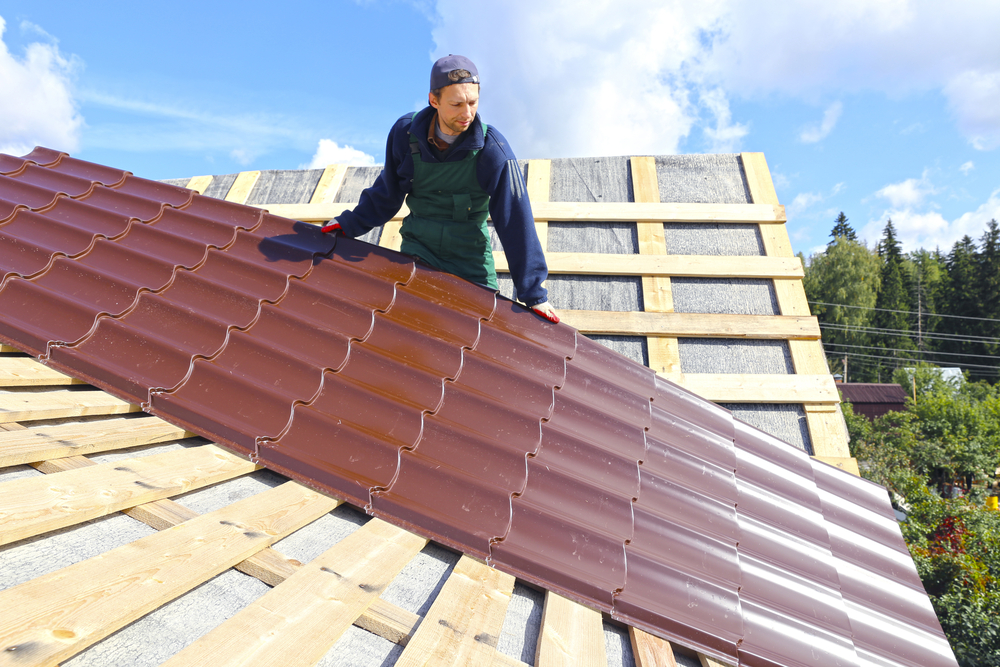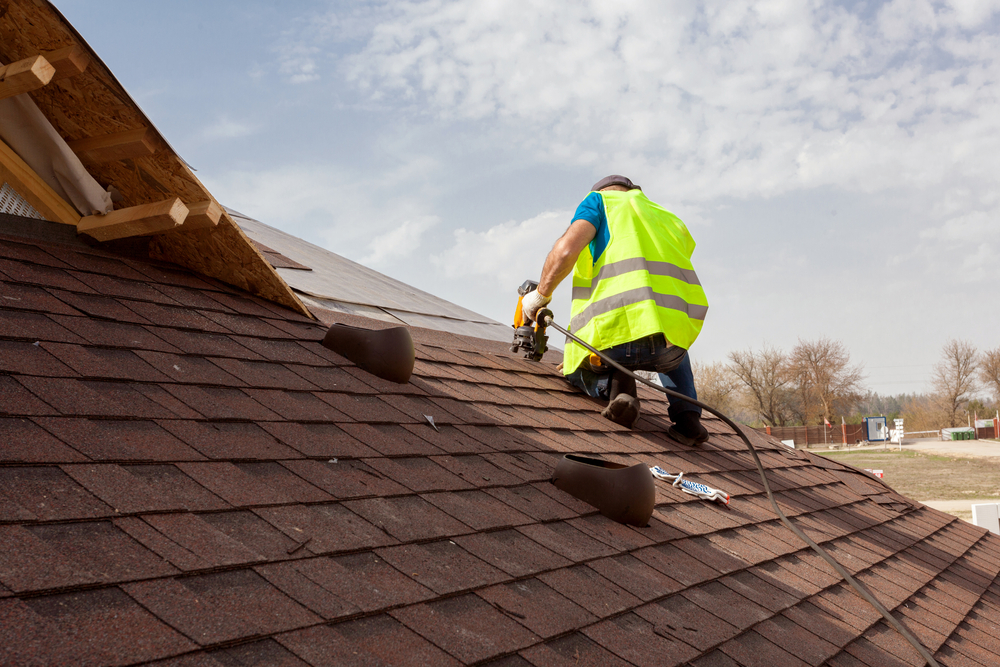What’s the Most Efficient Roof Material?
Eventually, during the life of a home, the roof will need to be replaced. Depending on the material, a roof’s longevity can vary from 20 years to nearly half a century! However, damage from hail, the weather (think snow!) and even natural disasters (like hurricane) can decrease the lifespan of a roof.
What’s the most efficient roof material? For some homeowners the bigger question might be, “what’s the most budget efficient material?”
A new roof is also a major investment. HomeAdvisor notes that while the average cost of a new roof is around $8,000, the replacement cost can be as low as $1,000 (on the low end) or as much as $45,000. Location, roof material, labor price and the square footage of the home can affect the final bill of this major home improvement endeavor. The pitch and code requirements as well as home details like a chimney or a skylight can affect the price, too, according to HomeAdvisor.
For homeowners looking to maximize energy efficiency, the most efficient roof material might be metal. The reason, according to Direct Energy, is due to the fact that metal reflects the sun…deflecting the heat away from the home. Asphalt shingles, on the other hand, absorb heat. Metal, slate and even tile roofs will last longer, too; these materials might not need to be replaced for 50 years! Metal roofs range in price, from around $5,000 to almost $14,000.

The Most Budget Efficient Roof
While metal roofs might be the more energy efficient choice, they aren’t the cheapest. For homeowners on a budget, the preference may be to choose the most cost efficient material possible. So what’s the cheapest material for a new roof?
The winner for the cheapest roof material would be the standard asphalt shingles! This is the material that decorates the top of many homes across the country. HomeAdvisor notes that “Asphalt shingles range from $100 to $150 per square (or 100 square feet).” Metal, however, costs three to more than 10 times more than asphalt shingles.

What about Other Options?
Asphalt shingle and metal aren’t the only options for roofing materials available to homeowners. Concrete/clay tiles, slate, wood shingles/shakes, and even synthetic materials are other options to consider. Wood can last about three decades, and cement can last a quarter of a century.
As for the pricing, these materials are more expensive than basic shingles. Modernize Home Services reports: “You can expect to pay $4.50 to $9.00 per sq. foot or $450 to $900 per square for wood shingles when installed on a standard sized single story home.”
According to HomeAdvisor, tile roofs can run from $7,744 to more than $22,000, with the average cost being more than $14,000. The site notes that this breaks down to about $8 to $24 per square foot. Tiles are more expensive than wood.
Solar Panel Roofs
While metal roofing as a full roof material is the most energy efficient, homeowners also can install solar panel roofs. Some homeowners may install only a few panels, although, other homeowners may use them to comprise the whole roof. In fact, Tesla has made a solar roof that “replaces your existing roof.” The roof then can be used as the energy source for your home.
Since the roof creates a source of home energy, it would, technically, bump metal as the most energy efficient of roof materials. But is this material durable? Tesla’s roof comes with a 25-year warranty (for tile and power…and “weatherization”). The price might be an issue, though. The site electrek reported that a homeowner sent them a quote from Tesla for a solar roof, and the cost was a little electrifying:
“For a 9.45 kW system on a 1,862 square foot roof, Tesla is charging $64,634 for the solar roof, along with $10,050 for a Powerwall, and another $10,630 for roof and site repairs.
It adds up to a shocking total of $85,314 for the entire solar roof system and work.”
However, the site noted that this particular homeowner had requested more tiles with solar capabilities and that this likely increased the cost.
Budget Efficient or Energy Efficient?
For many homeowners, the budget isn’t bottomless. For this reason, choosing the most energy efficient roof and splurging on the Tesla Solar Roof probably isn’t an option. For any home improvement project, unless the budget is unlimited, homeowners will be forced to make choices. They may have to select a budget-friendly material like standard asphalt shingles if they cannot afford premium materials.
However, for homeowners with a larger budget, it may make sense to choose an energy efficient option like metal. Slate or even wood could be great mid-range options, too, as these materials both provide longevity.
Homeowners should keep in mind that choosing a roof with a longer lifespan also could help save energy in more abstract ways. Roofs that need to be replaced more result in the use of more labor and more materials over time, which impacts our carbon footprint. If you need to replace your roof, opt for the best material for your budget and focus on the longevity of the material, too. If you can upgrade to a solar roof, you also could greatly reduce your energy costs by using the roof as your power source!


